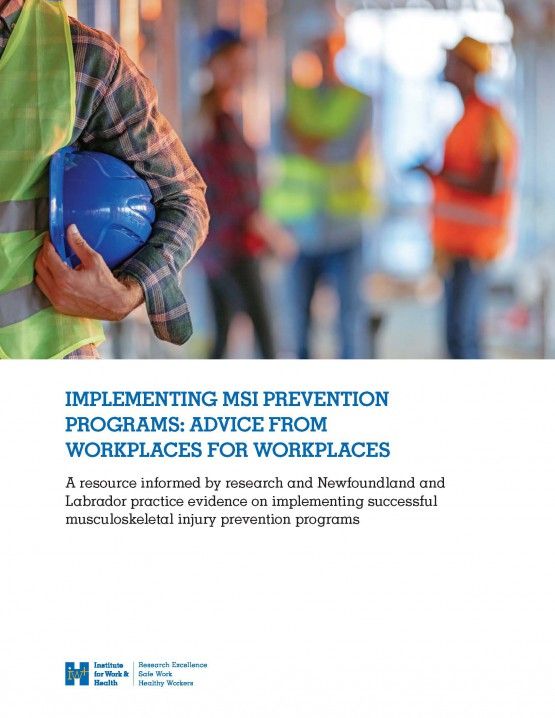Musculoskeletal injuries (MSIs) are a substantial burden to workplaces. They include low-back pain and upper extremity musculoskeletal disorders, such as carpal tunnel syndrome, shoulder tendinitis and many other pain disorders. Work-related physical risk factors for MSIs include heavy physical loads, awkward postures, arms positioned above shoulder level, repetitive movements, repetitive activity for prolonged periods and vibration. Psychosocial risk factors include high psychological demands, low job control and lack of social support, as well as personal factors such as number of years of employment. Given the wide variety of risk factors, prevention requires creative solutions.
Current practices in MSI prevention are diverse. However, little research evidence is available on the most effective occupational health and safety (OHS) interventions for MSI prevention, and even less is known about how to implement them successfully. To help address some of these gaps, the Institute for Work & Health worked with partners in Newfoundland and Labrador to create this resource. It draws upon the best available research evidence and integrates it with practice evidence (based on practitioner expertise and stakeholder experiences).
Who should use this resource?
This resource is designed to be used by any person in the workplace interested in MSI prevention. Users may include workers with MSIs or MSI symptoms, managers, human resources (HR) professionals, and union and worker representatives. The content is applicable to all types of workplaces and workers, regardless of sector or role.
